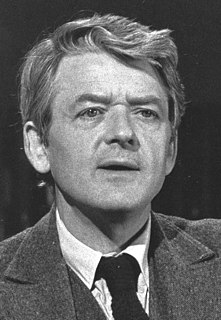A Quote by Deb Caletti
It was possible, maybe, to have facts in your mind that weren't facts at all. You could build a whole life's story on false assumptions. You could make truths out of untruths and untruths out of truths. Until you spoke them, really said them out loud or checked for sure, you may not have known which were which.
Related Quotes
There are certain truths which stand out so openly on the roadsides of life, as it were, that every passer-by may see them. Yet, because of their obviousness, the general run of people disregard such truths or at least they do not make them the object of any concious knowledge. People are so bliend to some of the simplest facts in everyday life that they are highly surprised when somebody calls attention to what everybody ought to know.
Truths emerge from facts, but they dip forward into facts again and add to them; which facts again create or reveal new truth (the word is indifferent) and so on indefinitely. The 'facts' themselves meanwhile are not true. They simply are. Truth is the function of the beliefs that start and terminate among them.
He wanted to talk to them, if he could, to discover whether they had truths about life which he had never heard before. Here is what he hoped new truths might do for him: enable him to laugh at his troubles, to go on living, and to keep out of the North Wing of the Midland County General Hospital, which was for lunatics.
Facts are neutral until human beings add their own meaning to those facts. People make their decisions based on what the facts mean to them, not on the facts themselves. The meaning they add to facts depends on their current story … facts are not terribly useful to influencing others. People don’t need new facts—they need a new story.
[The scientist] believes passionately in facts, in measured facts. He believes there are no bad facts, that all facts are good facts, though they may be facts about bad things, and his intellectual satisfaction can come only from the acquisition of accurately known facts, from their organization into a body of knowledge, in which the inter-relationship of the measured facts is the dominant consideration.
Facts, at any rate, could not be kept hidden. They could be tracked down by inquiry, they could be squeezed out of you by torture. But if the object was not to stay alive but to stay human, what difference did it ultimately make? They could not alter your feelings, for that matter you could not alter them yourself, even if you wanted to. They could lay bare in the utmost detail everything that you had done or said or thought; but the inner heart, whose workings were mysterious even to yourself, remained impregnable.





































